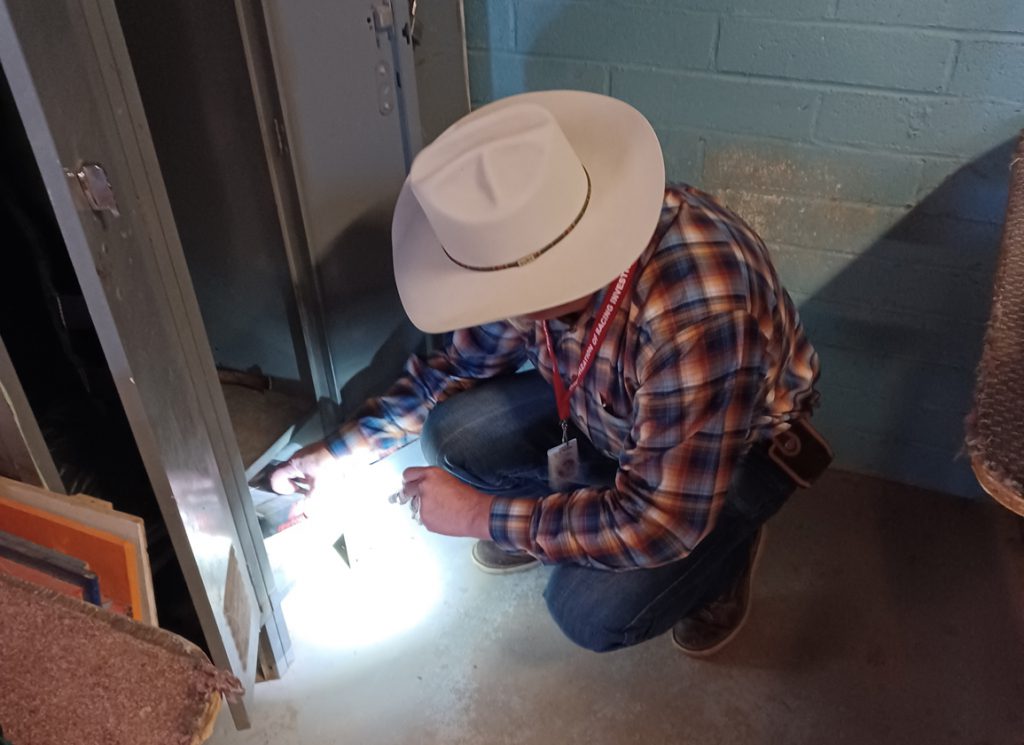Two board members from the Organization of Racing Investigators (ORI) warmed up their vocal chords and shared a sliver of their vast expertise concerning the value of racing integrity teams during a panel at the Global Symposium on Racing, sponsored by the University of Arizona's Race Track Industry Program, this past week.
Don Ahrens of Sam Houston Race Park and Jason Klouser of the Pennsylvania State Horse Racing Commission explained how these special squads, working alongside agencies like the Breeders' Cup, the U.S. Trotting Association, the American Quarter Horse Association and various state racing commissions and tracks, ensure that safety and security is center stage from the test barn to the winner's circle.
“We have developed an approach with these integrity teams which can be tailored to any situation, racetrack or regulatory body, and it really directs all of our resources to the protection of the equine athletes and ensure a level playing field for the participants, so the wagering public can bet on a product they can trust,” said Klouser.
Ahrens and Klouser are part of the ORI cadre which at its core is based on training and networking. Operating behind the scenes, members wage a daily effort to strengthen racing's regulatory efforts.
ORI member's tradecraft will be on full display from Mar. 3-6 when the ORI meets for what will be its 28th Training Conference. This time around, the multi-day event will be held at Parx Racing in Bensalem, Pennsylvania.
Chaired by Klouser, the preliminary agenda includes a diverse set of speakers who will be covering some of the most important issues pertaining to investigations in racing today.
“Our training conference continues to grow exponentially,” said Klouser. “That speaks to the organization's reputation and the importance of our network of investigators.”
This year's keynote address will be given by TDN's CEO/Publisher Sue Finley, who will discuss the changing landscape of media coverage and how it relates to racing integrity issues.
“We are excited to have Sue come and speak to the group since she has such an impressive list of accomplishments and we know she is going to deliver a unique set of perspectives concerning the media,” said Klouser.
Attendees will have the opportunity to hear from the following:
- William Behe, United States Attorney's Office, Penn National Race Fixing Prosecution
- John Burgess, British Horse Racing Authority, BHA Overview and Case Study
- Angela Pezel-McCloskey, USDA Inspection Services, Unregulated Horse Racing in North America
- Ismael Navarreto, Pennsylvania State Horse Racing Commission, Hidden Ownership & Fraud Case Study
- TC Lane, U.S. Trotting Association, USTA Regulatory Authority
- Cammie Helleski, University of Kentucky, Societal License to Operate
- Janet VanBebber, American Quarter Horse Association, AQHA's Role in Racing
- Vicky Kuora, FBI Violent Gangs & Safe Streets Task Force, Illicit Use of Xylazine
- Ann McGovern, Horseracing Integrity Safety Authority, Review of Churchill Downs Catastrophic Injury Report
- Shawn Loehr, Horseracing Integrity & Welfare Unit, HIWU Update
- Mickey Peterson, New Jersey Racing Commission, Preparing the Harness Horse for Racing
- Robert Martin, Parx Racing, Stable Area Access System
- Julie Engiles, Penn Vet-New Bolton Center Pathologists, Role in Equine Fatality Prosecutions
- Adam Morris, Governor's Office of General Counsel, Racing Official Prosecutions
- Michael Spada, Pennsylvania State Police, Case Study
- Carlos Quintana & Mónica Andreu, Comisión de Juegos de Puerto Rico, Regulating Racing in Puerto Rico
Click here for more information about ORI's 2024 Training Conference.
The post Investigators Point To Training Conference Mar. 3-6 At Parx appeared first on TDN | Thoroughbred Daily News | Horse Racing News, Results and Video | Thoroughbred Breeding and Auctions.

